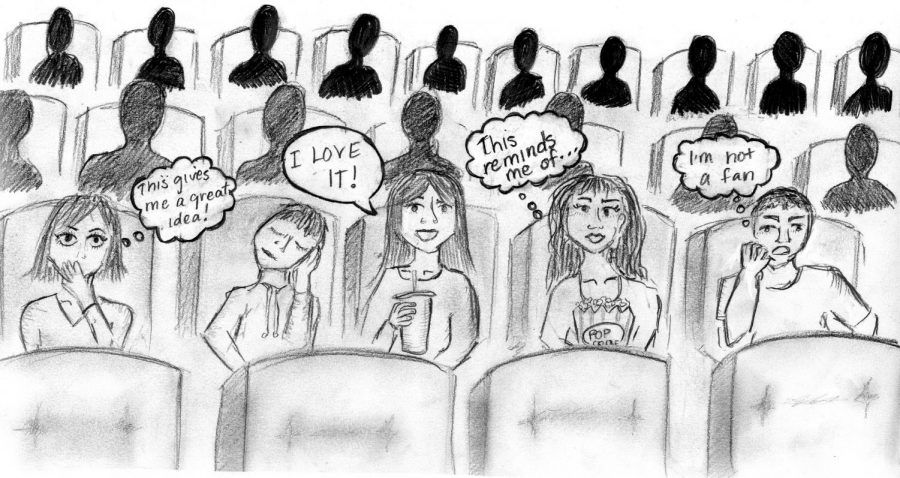Films leave lasting impact, significance varies among individuals
April 20, 2018
It was health week in PE, and junior Isabella Delatorre’s sixth grade class was watching the movie Super Size Me. Immediately, she was filled with disgust. After watching the film, not only did she and her family quit eating McDonalds, Delatorre says, she also became more conscious of other areas of her health, by exercising and maintaining healthy habits.
Super Size Me is a documentary film that follows filmmaker Morgan Spurlock on his social experiment of eating solely McDonalds meals for a whole month. Delatorre says that the realistic visuals and relatability of the character would not have had been as impactful had she simply read a book or statistic with a similar message.
“I think [films] have impacts on people’s lives because people relate to the characters and they see themselves in the characters and what they’re doing,” Delatorre said. “If they see the choices they make and how they affect their lives, they start contemplating their own lives and their own choices more.”
Similar to Delatorre, sophomore Jordan Dahiya says that one particular movie has left a significant impact on her life. After watching The Blind Side, a film based on a true story about a homeless black teen named Michael Oher who is taken in by a foster family, Dahiya says that her own family was inspired to take part in a foster family program called Safe Families through their church.
“My parents were definitely moved by [The Blind Side] and it kind of just gave them further reason to decide to take part in [the Safe Families program],” Dahiya said. “We’ve had quite a few children stay with our family through that program, and it’s been a similar situation where we wanted to provide that same stability and support through our home, and I think that movie genuinely was one of the catalysts for that.”
According to Dahiya, watching the movie as a child left a special impact on her life due to her familial background. Dahiya says that because she, too, was adopted, the film struck her on an emotional level and shaped her idea of family.
“As an adopted kid, there’s always kind of these ideas that are up in the air about ‘What does a family encapsulate if I’m not born into it, necessarily?’” Dahiya said. “So I think it kind of just gave me this parallel where someone is coming into a family from the outside but is just so accepted, and I think that really did form my idea of what a family is and what it means to be in a family. I think that’s what was so touching to my seven-year-old self.”
According to junior Logan Steenbergen, she grew up watching her parents’ ‘80s and ‘90s films, which spawned her continued love for watching movies. Steenbergen says that films are able to impact their viewers in such significant ways due to their natural ability to provide a sense of escape.
“I think people want to live a life that’s not their own, for a short period of time,” Steenbergen said. “You want something that you can daydream about when you’re sitting at your desk in school, [you] want to be distracted for just a little while. Movies have the ability to take you to worlds that might not even exist and tell stories that you never could have thought of in your wildest dreams, and I think that people are drawn to that.”
One important aspect of film is the varying impact of films on their audience, according to John Cowlin, Film Studies teacher. Cowlin says that he does not have a single answer as to which film has impacted him the most because films have affected him differently depending on his walks of life.
“It’s kind of like the book To Kill a Mockingbird,” Cowlin said. “As a kid, I wasn’t all that interested in it, [but] now as a father and I read back at it, instead of Scout being the entry point into the narrative for me, Atticus is.”
Cowlin says that what he enjoys about films is that the emotional and intellectual impacts that films have on their viewers can become real experiences. According to Cowlin, the first time he had witnessed this was when he watched the original Star Wars movie, which ultimately sparked his lasting love for films.
“The first movie I ever saw in a theater was the original Star Wars movie back in ‘78,” Cowlin said. “I was a little kid, I’d never seen a movie before [and all] I remember is the opening part and walking out of the theater, but I do remember this sense of euphoria, or a sense of wonder. I never have figured out how to put it into words, but it was this sense that it wasn’t just someone telling me a story, it’s that I had experienced a story.”



